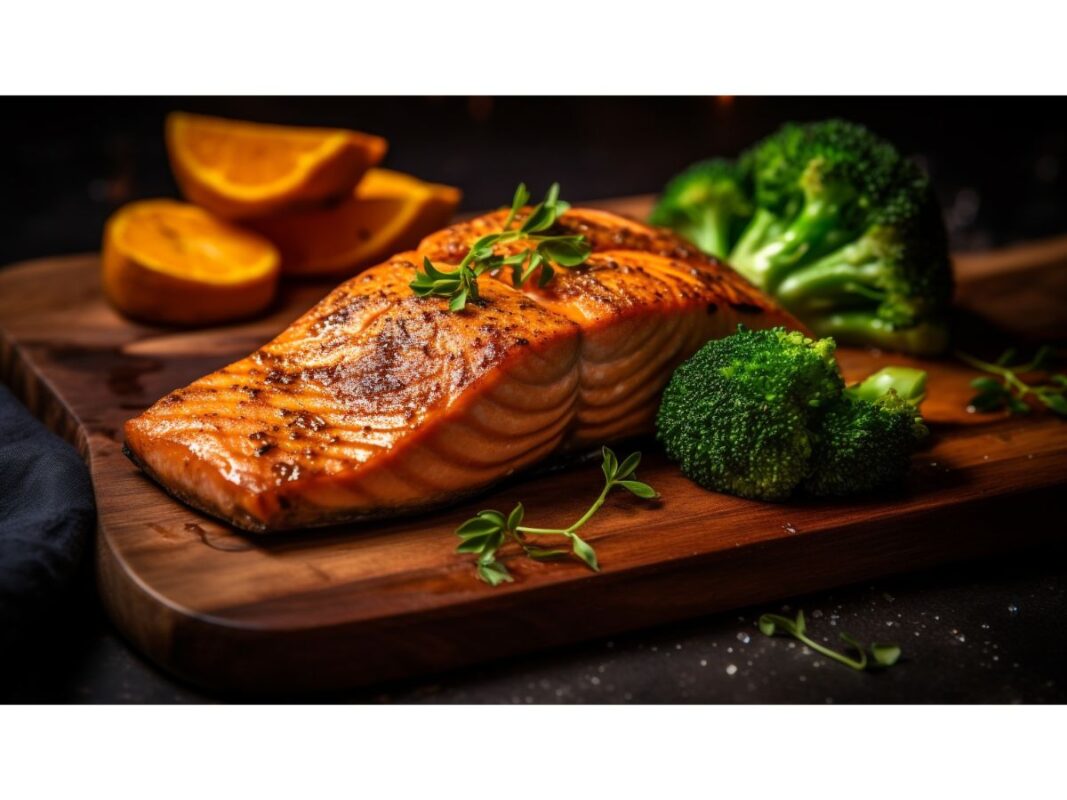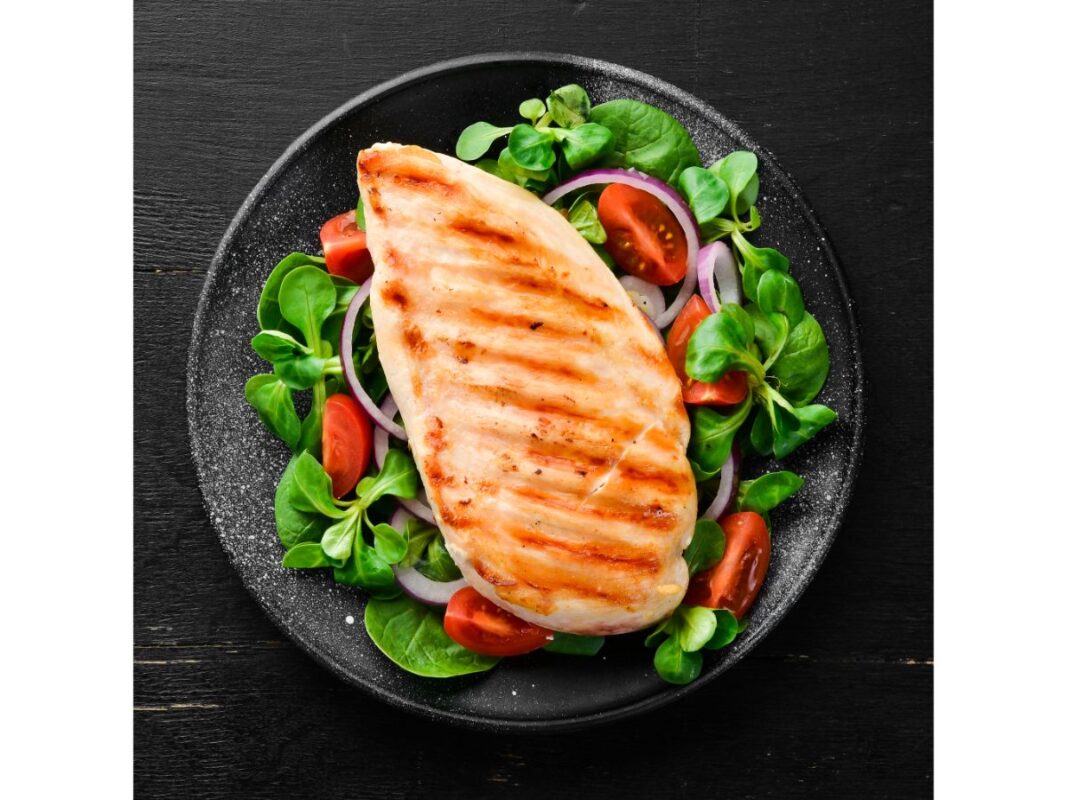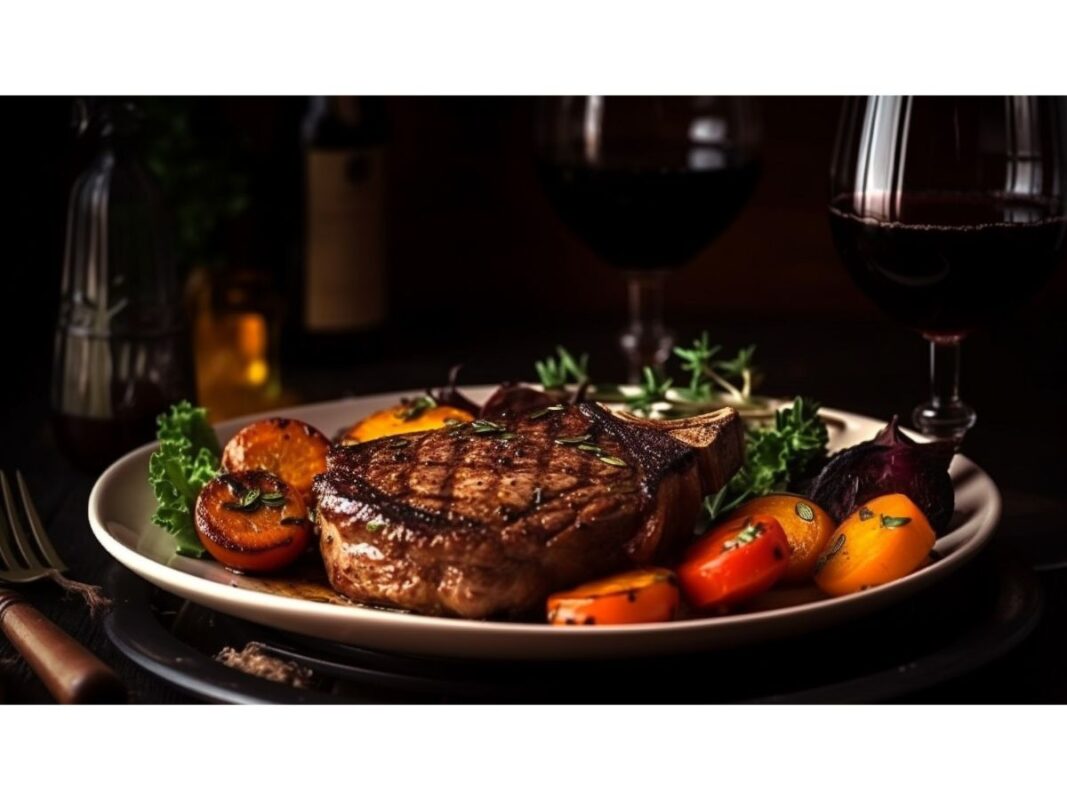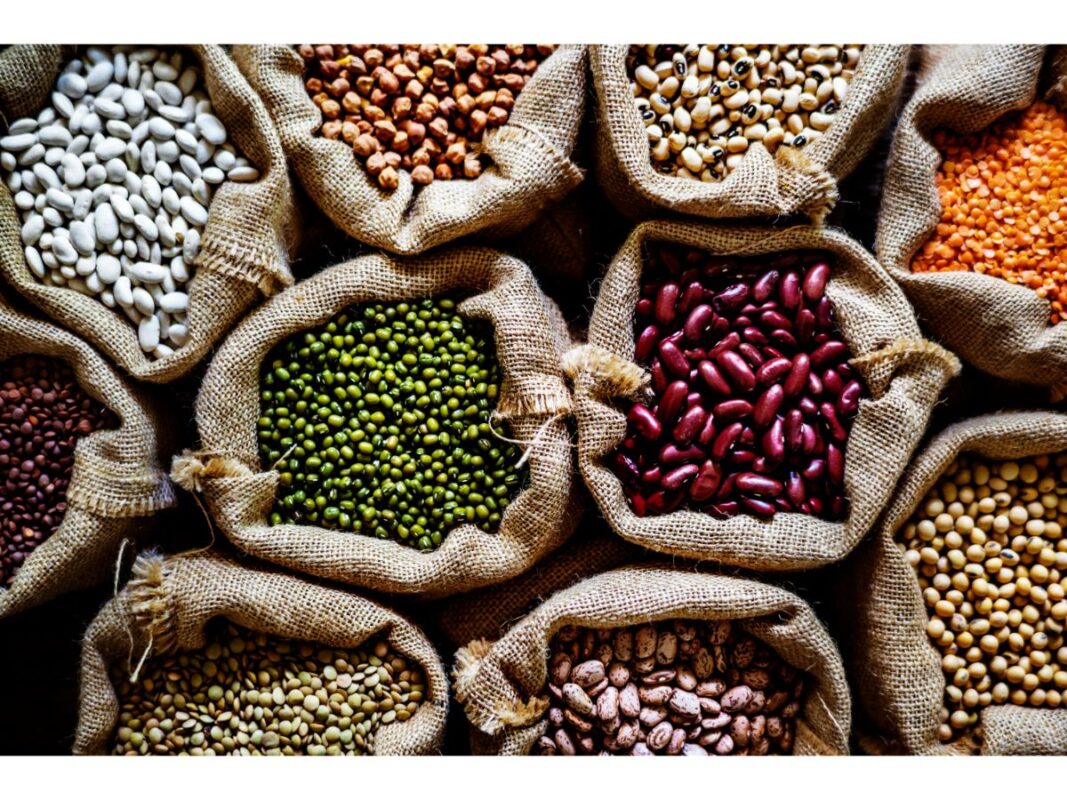Diet plays a crucial role in lean muscle building and giving a proper frame to the body.
If you are an avid gym-goer but compromise on your diet, you might not get the physique you desire to develop.
It is one of the common reasons why many gym-goes get stuck in transforming their body and ultimately end up feeling demotivated because of neglecting an important aspect of bodybuilding – Nutrition.
Protein is one of the major macronutrients required to optimize lean muscle growth.
Besides protein shakes, the diet should also be rich in high-protein foods to fuel muscles and maximize lean muscle gain.
In this article, we’re going to share:
- Why are muscles important
- How are muscles built
- What foods help you gain muscle
Eager to find out? Let’s get started.
Why are muscles important?
Do you know that the human body has more than 600 muscles? We need muscles to survive.
Muscles are made of tiny muscle fibres, and our nerve impulses control each muscle fibre’s movement. We need muscles to move, eat, speak, lift, breathe, and do all the other things we love.
Strong muscles keep us in good shape. They are essential to keep our joints, bones, knees, tendons, and ligaments fit. For example, a person with fragile knees is more prone to injuries and fall fractures.
Similarly, some muscles, like cardiac or digestive muscles, are categorized as smooth muscles as they line the inside blood vessels and organs. These are also involuntary muscles, as we have no control over them. Cardiac muscles help pump blood and are responsible for the heartbeat. Digestive muscles are required to move food we eat across the digestive system and push waste out of the body.
We often experience muscle soreness post an intense exercise session. Although muscle soreness is a normal phenomenon, it should not last long. If muscles cannot repair themselves and heal the micro tears during the recovery phase, it can result in muscle inflammation affecting muscle growth and overall athletic performance.
Muscle inflammation can cause these tears to get big, increasing injury risk. Therefore, good muscle health is necessary to minimize injury risk.
How are muscles built?

Source: Freepik
New muscles are formed when the muscle synthesis rate exceeds muscle breakdown. After an intense workout, newly formed muscle protein strands replace the damaged muscle fibres. Tiny muscle fibres fuse to grow in size and thickness, resulting in muscle hypertrophy.
But how does this occur?
It happens when we apply much more stress to muscles than our body is adapted to, and it can be done by progressive weight lifting. Many inflammatory molecules and immune cells activate during this stress and cause localized muscle damage. They trigger the satellite cells, which are a precursor to muscle cells.
Additionally, hormones are equally responsible for regulating these satellite cells. Testosterone and Insulin Growth Factor (IGF) – 1 are the primary hormones responsible for muscle growth 1.
The testosterone hormone has been shown to stimulate muscle protein synthesis by inhibiting protein breakdown and activating satellite cells and other anabolic hormones.
Resistance exercise is associated with high levels of growth hormone. Insulin and IGF-1 support muscle building by facilitating glucose and amino acids uptake into the skeletal muscle cells and activating satellite cells for muscle growth.
Interestingly, slow-twitch muscle fibres have more satellite cells than fast-twitch muscles.
Remember, adequate fueling and rest are essential for the entire muscle-building process to function smoothly.
What foods help you gain lean muscle?
Whether recreational or competitive bodybuilding, one must focus on the diet to achieve the desired muscle-building goals. Protein-rich foods are required for muscle growth, but carbohydrates and fats are equally important.
- Foods with high protein content
Protein-rich foods are crucial for new muscle growth as the body needs more protein than it breaks down. Insufficient protein intake might result in muscle loss2.
Exercise results in negative protein balance, during which muscle protein is catabolized to release amino acids to use as fuel and synthesize immune system components, hormones, and enzymes. The dietary protein mediates this shift to a positive protein balance that might vary based on protein quality.
One must include good-quality protein sources containing a mix of amino acids, primarily essential ones. For example, leucine is an essential amino acid to trigger muscle protein synthesis. Increased amino acid transport augments the rate of muscle anabolism when combined with regular training.
- Foods containing carbohydrates and fats
Bodybuilders often overlook the other two crucial macronutrients needed for muscle growth – carbohydrates and fats.
We need glucose as an energy source, and carbs are stored in the body as glycogen. Not having enough glycogen stores can make our training session a pain. Carbohydrates are the prime energy source that helps you keep going during those gruelling workout sessions.
Carbs also enhance insulin’s role in transporting nutrients into the cells, including muscles. They are significant for muscle recovery to spare protein for muscle building and replenish glycogen stores post-workout.
Good fats also deserve credit for their role in muscle building. Healthy fats promote HDL or good cholesterol levels in the body. Studies support that HDL increases the production of growth hormone levels making more amino acids available for muscle growth.
Fats are an energy source for us and vital for muscle activity, blood clotting, and inflammatory retort, which helps the body repair from injury after training.
We need fat to absorb essential vitamins like A, D, E, and K. Low-fat levels can hinder their absorption resulting in deficiency disorders.
Top 20 Foods That Promote Muscle Growth
1. Eggs

Source: Freepik
Eggs are an incredible high-quality protein source. They contain all amino acids, especially leucine, in higher quantities necessary for new muscle growth. It is better to opt for a whole egg to enjoy the benefits of other nutrients like good fats, choline, vitamin A, folate, and vitamin D, besides protein.
2. Fatty Fish

Source: Freepik
Fatty fish like salmon, tuna, and mackerel are excellent for building lean muscle. They provide around twenty-one grams of lean protein per 100 grams and are packed with omega-3 fatty acids.
Numerous studies have proven the efficacy of omega-3 fats in reducing post-exercise muscle soreness and inflammation and strengthening joints.
3. Chicken Breast

Source: Freepik
Chicken breast is one of the most loved foods by bodybuilders. It contains no carbs but is rich in micronutrients like niacin, selenium, phosphorus, and vitamin B6.
The high protein content of chicken provides fullness for a long in fewer calories and promotes lean muscle growth when paired with regular exercise. Consuming chicken prepared using healthier forms like grilled, baked, or stir-fried is advisable.
4. Protein Powders

Source: Freepik
In addition to healthy food options, one can also consider protein powders to build lean muscles 3. They are versatile to consume, convenient, and usually provide 20-25 grams of high-quality protein in a single scoop.
One can choose whey, casein, or plant-based protein powders based on the health goal. They are a good source of BCAAs and other amino acids to build muscle.
5. Quinoa

Source: Freepik
Quinoa is a plant-based pseudocereal known for its high protein content. The complete protein blend with complex carbs makes quinoa one of the best muscle-building foods.
Quinoa is also a good dietary fibre, magnesium, and phosphorus source. We need magnesium for proper muscle contraction as it facilitates blood sugar movement into muscles and alleviates lactic acid build-up, which may cause fatigue. Both these micronutrients are also needed for strong bone density.
6. Greek Yoghurt

Source: Freepik
Greek Yoghurt is another delicious and nutrient-dense food for your muscle-building diet.
Be it delicious smoothies or simply adding fruits, nuts, and seeds, one can never go wrong with Greek Yoghurt. One can enjoy this super healthy blend of slow and fast-releasing proteins with healthy carbs and fats as a mid-meal or post-workout snack. Greek Yoghurt may also help meet your daily calcium need.
7. Seeds

Source: Freepik
Chia, pumpkin, flaxseeds, and hemp seeds are excellent options for weight loss and bodybuilding. These tiny powerhouses of dietary fibre, magnesium, zinc, iron, selenium, and omega-3 fats keep us energized, fight oxidative stress, regulate insulin levels, and boost fat burn.
Seeds are easy to integrate into the diet and suitable for all, including vegans.
8. Goat Meat

Source: Freepik
Goat meat or mutton is nutritious, providing various health benefits. It is high in lean protein, iron, and potassium and naturally low in sodium.
Its protein contains all essential amino acids to strengthen our muscles, bones, and immune system. So, if you are trying to build muscle, you can consider including mutton in your diet.
9. Shrimp

Source: Freepik
Shrimps are low in calories, carbs, and fats but high in protein.
Shrimps are high in amino acids like leucine and arginine. Our body utilizes leucine for muscle-building and arginine to produce nitric oxide and enhance blood flow.
Shrimps may also help prevent inflammation by promoting healthy homocysteine levels in the blood.
10. Soybeans

Source: Freepik
Soybeans are a superb plant-based protein source.
They do not contain saturated fats but are a rich source of vitamins and minerals like calcium, iron, phosphorus, and vitamin K.
Due to the well-known health benefits of soybeans, many fitness enthusiasts and bodybuilders prefer including soy protein powders in their regular diet to satisfy daily protein needs.
11. Cottage Cheese or paneer

Source: Freepik
Cottage cheese is packed with slow-releasing casein protein that stimulates a steady supply of amino acids, promoting muscle growth and maintenance. This property additionally aids in weight loss by providing satiety.
Cottage cheese is also rich in calcium, selenium, and phosphorus. One may find various types of cottage cheese in the market with different fat percentages. People avoiding full-fat dairy can opt for low-fat cottage cheese for muscle gain.
12. Beans

Source: Freepik
Beans are a fantastic bodybuilding food. They are plant-based, high in dietary fibre, and packed with B vitamins. Beans come in ample varieties like red kidney or black beans, lima beans, pinto beans, and garbanzo beans, so one can never get bored of them.
Beans are versatile and easy to incorporate into the diet, but if you prefer canned beans, check the added salt, sugar, sodium content, and preservatives used.
13. Chickpeas

Source: Freepik
Chickpeas contain a hearty amount of amino acids and other nutrients like vitamins A, E, and C, folic acid, iron, potassium, and magnesium.
The high protein and carb content of chickpeas aid in muscle building and keep energy levels up. Chickpeas in hummus form can be a great addition to healthy spreads and dips for your sandwiches.
14. Peanuts

Source: Freepik
Peanuts have been shown to benefit a lot during weight loss and bodybuilding. They are a high protein, high fat, and moderate carb food. Though the fat content of peanuts is high, most come from healthy monounsaturated and polyunsaturated fats.
Peanuts are loaded with antioxidants and micronutrients like zinc, niacin, potassium, magnesium, and calcium. All these nutrients are vital in better muscle contraction, fighting free radicals, and energy metabolism.
A handful of peanuts or a spoonful of peanut butter can be a healthy anytime snack to keep junk food cravings at bay.
15. Buckwheat

Source: Freepik
Buckwheat, also known as kuttu in Hindi, is a pseudocereal. It is commonly used in flour form as a health food and is widely known for its high fibre, vitamins, and minerals content.
Being a gluten-free cereal, buckwheat is an incredible grain substitute for people with celiac disease or gluten intolerance. Buckwheat has been shown to control blood glucose and cholesterol and reduce inflammation.
16. Tofu

Source: Freepik
Tofu is made from soy milk. It is dairy-free, low in calories, and contains no cholesterol. Tofu is nutrient-dense and provides a variety of vitamins, iron, calcium, dietary fibre, and omega-3 fats.
Besides helping lower LDL or harmful cholesterol levels, tofu can be highly beneficial for adding muscle mass because it is a complete protein source containing all nine essential amino acids.
17. Pulses

Source: Freepik
Pulses and lentils should be a part of the bodybuilding diet. Adding them to a daily diet means a good dose of proteins and carbs without unhealthy fats and cholesterol.
Pulses have a low-glycemic index and are suitable for healthy blood sugar levels. Their high insoluble dietary fibre content also suppresses appetite and supports weight loss.
One can enjoy them in cooked, boiled, stew, or soup form.
18. Milk

Source: Freepik
Milk is another best bodybuilding food. It contains around 80% casein and 20% whey hence a combination of slow and fast-releasing proteins.
Milk provides high-quality protein and all amino acids essential for muscle growth. If you are not a protein supplement fanatic, enjoy a glass of milk post-workout to boost recovery, or have it at bedtime with a pinch of turmeric.
19. Almonds

Source: Freepik
They contain many vital nutrients, including protein and healthy fats, that may support lean muscle growth.
Almonds are rich in vitamin E, a powerful antioxidant to minimize the free radical effect and post-exercise muscle soreness. Besides vitamin E, almonds are a nutritional powerhouse of B vitamins, zinc, copper, magnesium, phosphorus, potassium, and iron.
Nibbling on almonds is a great way to get nutrients and energy with less risk of piling on unwanted calories.
20. Brown Rice

Source: Freepik
Although brown rice is not that high in protein, it is rich in carbs needed to stay energized for a workout. They may improve overall body composition and develop a lean physique by maintaining energy levels to perform strenuous exercises.
Brown rice is a healthy plant-based protein alternative for lactose intolerants and people allergic to soy and gluten. Additionally, high levels of B vitamins and high dietary fibre content of brown rice may also support fat loss goals by ensuring optimal cell function and averting hunger.
Conclusion
In summary, nutrition is equally important as regular training to get bigger and stronger. Our body can not create muscles on its own without the right fuel.
Ensure you eat enough calories from healthy food sources to maximize your workout. Focussing less on nutritional foods and more on junk might consequence in unwanted excess fat accumulation.
For lean muscle build, exercise regularly. Exercising is not only essential to increase muscle mass but also to improve joint flexibility, balance, and bone density.
What are 5 foods to increase lean muscle?
Dairy products
Eggs
Chicken and Fish
Nuts
Pulses and Legumes
How do I build super lean muscle?
A well-calculated diet with an optimal macronutrient ratio of vitamins and minerals paired with regular exercise is vital to building lean muscle mass.
Which food made our muscles strong?
Good quality protein-rich foods and foods high in complex carbs and healthy fats help strengthen our muscles, such as eggs, pulses, dairy foods, soybean, brown rice, nuts, and seeds.
What are the foods that help females gain muscle?
Eggs
Soybeans
Chicken
Protein Powders
Milk
Tofu
Nuts & Seeds
What is the best Indian diet plan for muscle building?
Indian meals offer a lot of protein-rich foods with healthy carbs and fats for lean muscle building; for example, dal with rice, paneer preparations, besan cheela, vegetable Dalia, etc. Check this guide on a diet plan for muscle gain for a detailed guide.
What is the best meal plan for muscle building and bulking?
To grow new muscles, one needs to be in an anabolic state; the body should have sufficient fuel to build and repair tissues. Creating a calorie surplus on your daily needs is essential for bulk bodybuilding. Check this 1O1 guide to a bulk bodybuilding diet.
What should I eat and drink if I want to gain muscle?
You may include the following options to gain lean muscle mass.
Dairy foods
Protein Shakes
Coconut Water
Buttermilk
Yoghurt Smoothies
Egg
Chicken
Seafood
Pulses and Legumes
Nuts and Seeds
- Fink, J., Schoenfeld, B. J., & Nakazato, K. (2017). The role of hormones in muscle hypertrophy. The Physician and Sportsmedicine, 46(1), 129–134[↩]
- Carbone, J. W., & Pasiakos, S. M. (2019). Dietary Protein and Muscle Mass: Translating Science to Application and Health Benefit[↩]
- Pasiakos, S. M., McLellan, T. M., & Lieberman, H. R. (2014). The Effects of Protein Supplements on Muscle Mass, Strength, and Aerobic and Anaerobic Power in Healthy Adults: A Systematic Review. Sports Medicine, 45(1), 111–131[↩]


